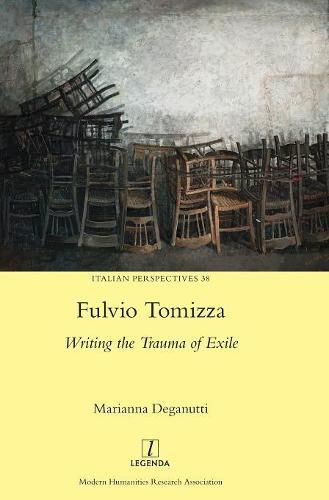Readings Newsletter
Become a Readings Member to make your shopping experience even easier.
Sign in or sign up for free!
You’re not far away from qualifying for FREE standard shipping within Australia
You’ve qualified for FREE standard shipping within Australia
The cart is loading…






This title is printed to order. This book may have been self-published. If so, we cannot guarantee the quality of the content. In the main most books will have gone through the editing process however some may not. We therefore suggest that you be aware of this before ordering this book. If in doubt check either the author or publisher’s details as we are unable to accept any returns unless they are faulty. Please contact us if you have any questions.
In what language is it possible to elaborate the trauma of exile? By dealing with the diaspora from Istria, a borderland located at the intersection of the Italian and the Croato-Slovene civilizations, Fulvio Tomizza (1935-1999), an outstanding and yet still relatively unknown author of the Italian Novecento, questioned exile in depth. This exile, which took place after the post-war redefinition of the Italo-Yugoslav border, corresponds to a trauma, that can be better analysed through the language used by Tomizza, in particular through his multilingualism and self-translation. In this work, Deganutti suggests that only the Italian language the author chooses to write his novels - which corresponds both to a native and a translated tongue - allows him to cope with the trauma of exile, or at least with what could be told about it.
Marianna Deganutti is a Research Associate at the Department of Politics, Languages & International Studies - University of Bath.
$9.00 standard shipping within Australia
FREE standard shipping within Australia for orders over $100.00
Express & International shipping calculated at checkout
This title is printed to order. This book may have been self-published. If so, we cannot guarantee the quality of the content. In the main most books will have gone through the editing process however some may not. We therefore suggest that you be aware of this before ordering this book. If in doubt check either the author or publisher’s details as we are unable to accept any returns unless they are faulty. Please contact us if you have any questions.
In what language is it possible to elaborate the trauma of exile? By dealing with the diaspora from Istria, a borderland located at the intersection of the Italian and the Croato-Slovene civilizations, Fulvio Tomizza (1935-1999), an outstanding and yet still relatively unknown author of the Italian Novecento, questioned exile in depth. This exile, which took place after the post-war redefinition of the Italo-Yugoslav border, corresponds to a trauma, that can be better analysed through the language used by Tomizza, in particular through his multilingualism and self-translation. In this work, Deganutti suggests that only the Italian language the author chooses to write his novels - which corresponds both to a native and a translated tongue - allows him to cope with the trauma of exile, or at least with what could be told about it.
Marianna Deganutti is a Research Associate at the Department of Politics, Languages & International Studies - University of Bath.